Better policies sustainably develop genetic resources in Vietnam
This call was made at a conference held to evaluate the implementation results of the Programme on Conservation and Sustainable Use of Genetic Resources for the 2015-2024 period. The event, organised by the Ministry of Science and Technology (MoST), took place in Hanoi on July 29.
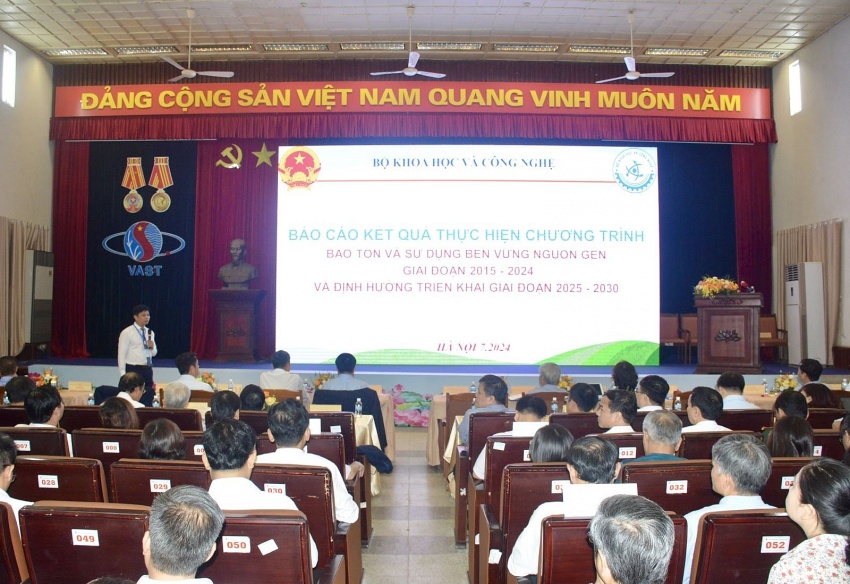 |
| State management authorities, scientists, and experts gathered at the seminar |
Addressing the event, Minister of Science and Technology Huynh Thanh Dat said that over the past decade, the conservation, development, and utilisation of genetic resources have been implemented comprehensively at both central and local levels. Many of Vietnam's precious genetic resources have been restored, preserved, and stored, providing an essential basis for exploitation and development and contributing to the conservation of the country's biodiversity.
The minister emphasised the need to "focus on perfecting the national genetic resources data management system and the national gene fund facility network while promoting investment in physical facilities and technical infrastructure for genetic resources storage and conservation centres."
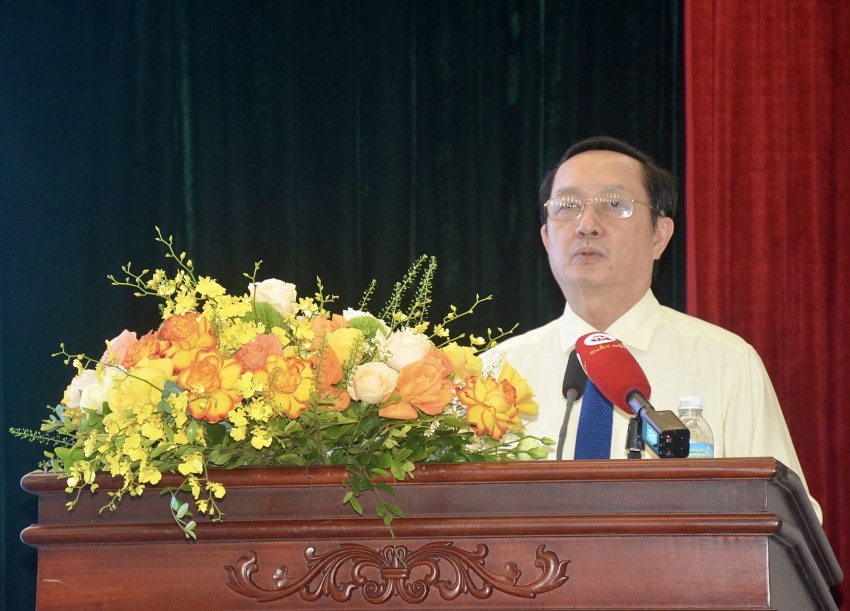 |
| Minister of Science and Technology Huynh Thanh Dat |
“It is also necessary to promote the reasonable exploitation and development of restored and conserved genetic resources to serve socioeconomic development and create jobs for local people,” he added. “We should focus on selecting genetic resources with rare and economically valuable traits to continue researching and creating endemic varieties of Vietnam, thereby developing a number of key products for export, import, and domestic consumption.”
The event provided an opportunity for state management authorities, scientists, and experts to discuss and share experiences, achievements, challenges, and recommendations for enhancing the programme's implementation efficiency in the future.
Nguyen Phu Hung, head of the MoST’s Department of Science and Technology for Economic Technical Branches said, “The programme has achieved many encouraging results in conserving and developing genetic resources, contributing to socioeconomic development, environmental protection, and national defence and security.”
By 2023, nearly 81,000 genetic resources had been collected and stored through conservation and sustainable use efforts, including more than 47,700 agricultural plant genetic resources, over 5,700 forestry genetic resources, over 7,000 medicinal genetic resources, 891 livestock genetic resources, 391 aquatic genetic resources, and over 19,000 microbial genetic resources. Notably, more than 7,000 genetic resources with medicinal value have been discovered, collected, and preserved. Many of these resources have been effectively utilised, generating socioeconomic benefits.
Hung also highlighted that hundreds of standards, including those for best breeding animals, dominant plants, and commercial seedlings, have been established. These accomplishments demonstrate the ongoing efforts in conservation, evaluation, and development of genetic resources across the country.
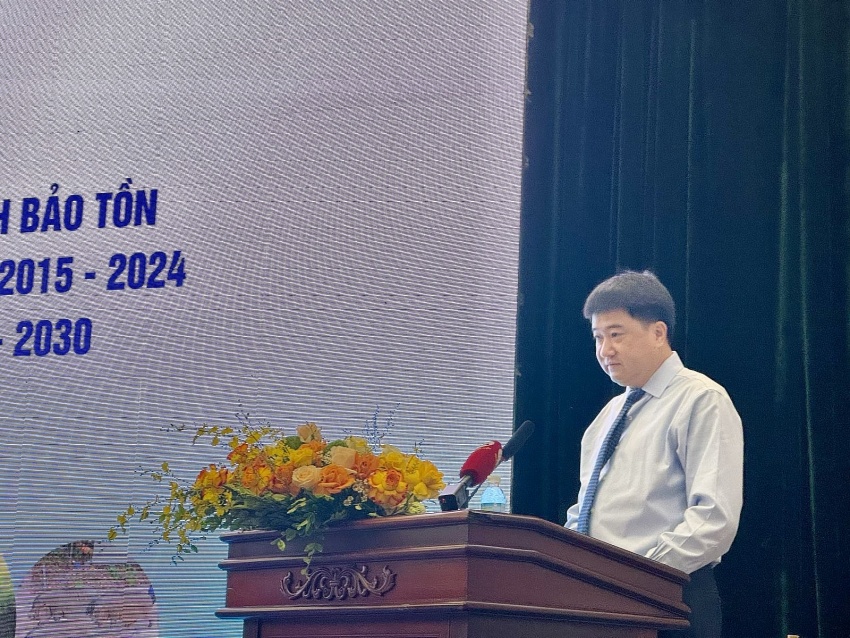 |
| Prof. Dr. Chu Hoang Ha, vice president of the Vietnam Academy of Science and Technology (VAST) |
Prof. Chu Hoang Ha, vice president of the Vietnam Academy of Science and Technology, said that Vietnam aims to promote economic development based on biology, green economy, and circular economy.
The Fourth Industrial Revolution has underscored the importance and role of indigenous genetic resources in socioeconomic development, particularly in agriculture and biodiversity. Therefore, implementing the programme should continue to prioritise in-depth basic research on genetic resources, including gene digitisation according to international standards, conservation maintenance, and intellectual property registration, alongside traditional research on animal, plant, and microbiological genetic resources.
Regarding solutions and policies to address challenges and future development, participants agreed on the need for synchronised policies for sharing genetic resources among gene pool networks, organisations, and businesses. Research into genetic resources for conservation and storage requires the most appropriate mechanisms to prevent loss. Additionally, mechanisms for transferring rare genetic resources, specific operating regulations for the gene fund network, and particular mechanisms for unique genetic resources should be established promptly.
Nguyen Quan, former Minister of Science and Technology and former head of the Executive Committee of the Gene Fund Programme, emphasised the need to build a programme framework, goals, and implementation solutions for the next period. He also called for a comprehensive evaluation of state and societal investment in the programme, noting that past state investment has been too modest to achieve significant breakthroughs in genetic resource exploitation and development.
Furthermore, a research unit with potential and qualifications should be assigned to assess genetically modified crops and foods comprehensively, providing recommendations for their development and use in Vietnam's socioeconomic growth.
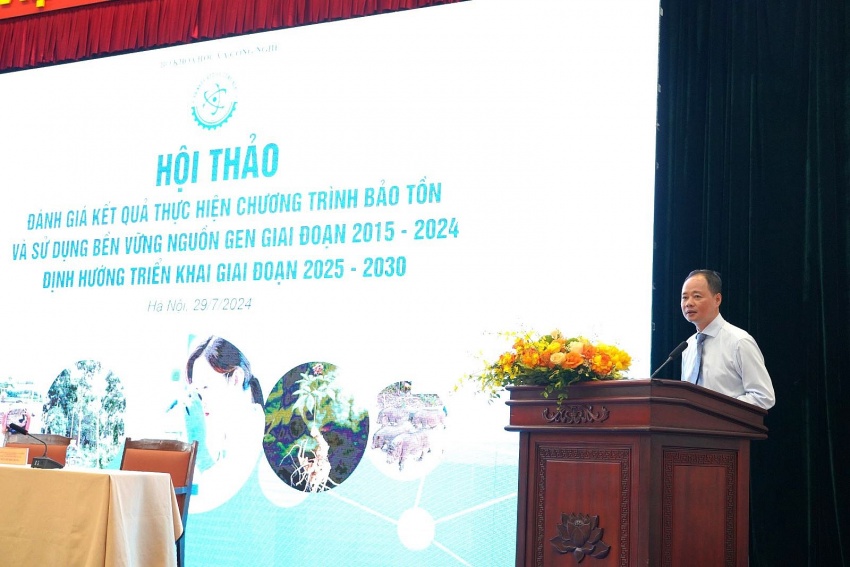 |
| Deputy Minister of Science and Technology Tran Hong Thai |
Deputy Minister of Science and Technology Tran Hong Thai said that it is necessary to improve the mechanism for deploying and transferring technology to businesses and individuals, while promoting sharing of international experience and knowledge, connecting central to local levels in building and implementing the programme framework so as not to be interrupted.
“To complete the goals set out in Decision No. 1671/QD-TTg, contributing to the successful implementation of the National Strategy on Biodiversity to 2030, we need to continue to strengthen, upgrade facilities, equipment, scientific research, and technology development to serve the conservation, storage, and evaluation of genetic resources, and increase resources to conserve and sustainably use genetic resources, contributing to biodiversity conservation and protecting the country's resources,” he said.
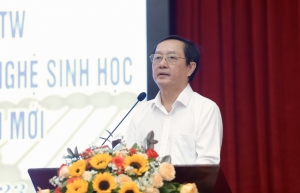 | Vietnam moves to develop biotechnology Vietnam aims to develop and apply biotechnology as part of the country's sustainable development, striving to build an international-standard industry. |
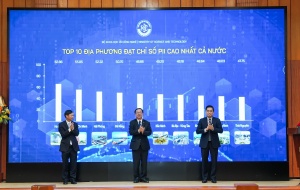 | Vietnam announces provincial innovation index for 2023 The Ministry of Science and Technology (MoST) held a meeting on March 12 to announce for the first time the Provincial Innovation Index 2023 (PII). |
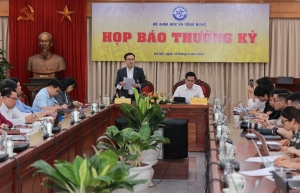 | Vietnam to overhaul Law on Science and Technology The Ministry of Science and Technology (MoST) is planning to comprehensively amend the Law on Science and Technology to better facilitate sci-tech activities and innovation. |
What the stars mean:
★ Poor ★ ★ Promising ★★★ Good ★★★★ Very good ★★★★★ Exceptional
Related Contents
Latest News
More News
- Nestlé Vietnam's Lunar New Year campaign reframes how Tet is counted (January 28, 2026 | 11:40)
- Tet event in Japan celebrates success of 14th National Party Congress (January 25, 2026 | 10:04)
- 14th National Party Congress wraps up with success (January 25, 2026 | 09:49)
- Congratulations from VFF Central Committee's int’l partners to 14th National Party Congress (January 25, 2026 | 09:46)
- List of newly-elected members of 14th Political Bureau announced (January 23, 2026 | 16:27)
- 14th Party Central Committee unanimously elects To Lam as General Secretary (January 23, 2026 | 16:22)
- List of members of 14th Party Central Committee announced (January 23, 2026 | 09:12)
- Highlights of fourth working day of 14th National Party Congress (January 23, 2026 | 09:06)
- Press provides timely, accurate coverage of 14th National Party Congress (January 22, 2026 | 09:49)
- Press release on second working day of 14th National Party Congress (January 22, 2026 | 09:19)

 Tag:
Tag:























 Mobile Version
Mobile Version